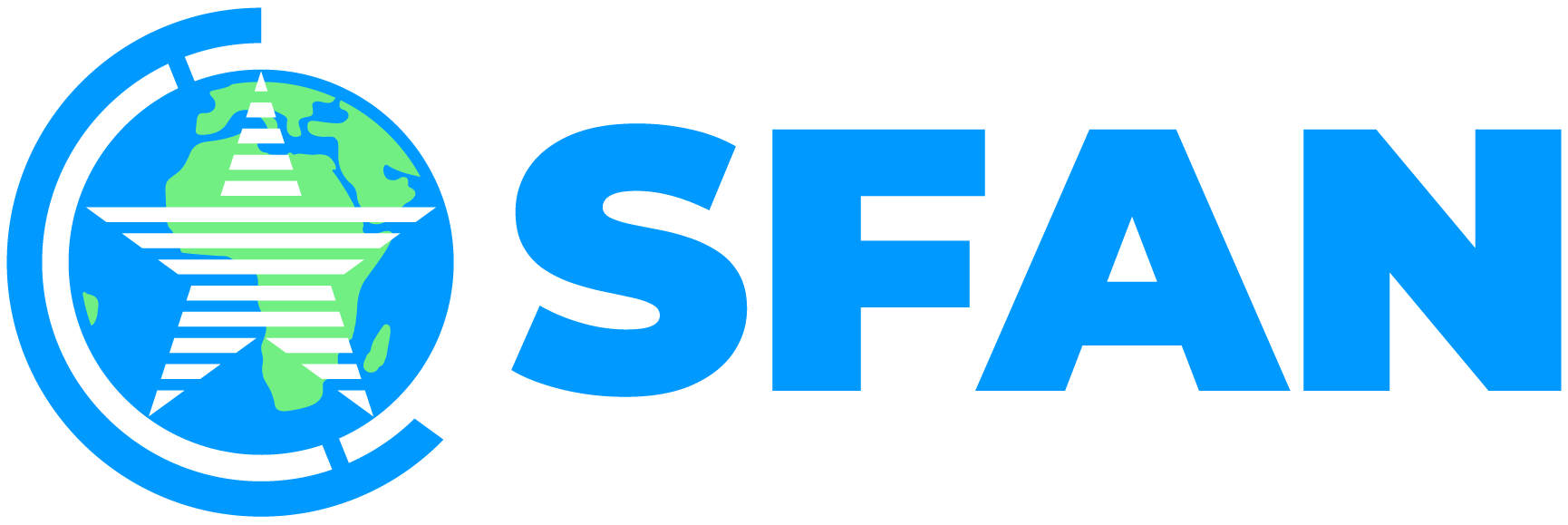What Entry-Level Talents Want from Employers: Insights from Young Leaders
by SFAN Staff · Career advice
Tue, 09 Apr 2019 · 3 minute read
Share

One of the most exciting sessions of the Quantum Leap Career Fair 2019 is the entry-level talent panel. The panel featured Ashley Zakia Ancordi, Program Manager for SFAN, Prince Dogbe, Senior Analyst at GFA Consulting, Joy Hammond, National Service Personnel at Volta River Authority (VRA), Collins Losu, a Student at the University of Ghana (UG), and Bankole Williams, Advocacy Chairperson of Ghana Disability Federation. It was moderated by SFAN founder and president, Tom-Chris Emewulu.
I was super excited about this discourse for two broad reasons:
- The 2018 edition of the Deloitte Millennial Survey suggests that millennials’ confidence in business and loyalty to employers is deteriorating.
- In Africa, some 375 million young people will become of working age within the next 15 years. Understanding what excites and motivates them at work is crucial.
With a little pause and thought in the week since the event, below are our key takeaways from the conversation on what millennials want from their employers.
1. Entry-Level Talents Want to Work in an Ethically Conscious Company

“If I’m looking for a job, I want to work for a company that is ethically conscious," stated Ashley Ancordi.
Every panelist on the youth panel underlined the need for employers to create frameworks that foster an ethical climate in their companies. According to Deloitte:
"There continues to be a stark mismatch between what millennials believe responsible businesses should achieve and what they perceive businesses’ actual priorities to be. Where matches exist, the perception is that those companies are more successful, have more stimulating work environments, and do a better job of developing talent."
Much ethical misconduct happens in organizations that young people don’t get to talk about for fear of losing their jobs, Ashley explains. “These issues often affect the performance of workers.”
Obviously, anyone looking to recruit millennials (and their sister generation, Gen Z—people born between the mid-1990s and the early 2000s) must first build an ethical business. In short, Millennials want to work with “leaders whose decisions might benefit the world—and their careers.”
2. Diversity and Inclusion Matter to Youth
“It’s very unfortunate for an individual to prepare very well to have an impact on society, only to be denied opportunity simply because he or she is disabled. I think the opportunity should be given to all and sundry to show their talents.” -- Collins Losu
Attracting and retaining skilled millennials is easier when companies and their management teams create a culture of diversity and inclusion. As a visually impaired student hoping to contribute his quota to the development of his country, Collins Losu is familiar with the frustration of judging a book by its cover. “Companies should plan with diversity in mind from the very beginning and create policies that make diversity part of their system and not an afterthought.”
Creating a policy with a purpose is extremely vital. “What we've done, with help from stakeholders like DFID and the British Council, is to help employers in Ghana develop diversity education policy. In our sensitization of employers, we say the policy must be clear in what it seeks to achieve."

"It's only when you succeed in integrating the values and the principles of the employer into the diversity policy that you can implement it properly,” Bankole Williams, Advocacy Chairperson of Ghana Disability Federation, explains.
For anyone reading this article, the subject of diversity and inclusion is not new at all. The merits are equally clear. Experts say that really diverse companies outperform industry standards by 35%.
According to a McKinsey study, companies in the top quartile for gender diversity are 15% more likely to have financial returns above their national industry peers. Yet, few companies there be in Ghana can boast of committing to creating a truly diverse and inclusive workforce.

As Prince Dogbe, Senior Analyst at GFA Consulting, points out, “A lot of us, millennials, want to be involved in the decision-making and management processes of the company. My employer has created an environment where my views are taken into consideration. I believe that if other employers can adopt that strategy ...it will create an environment that is suitable for their workers.”
3. Entry-level Workers Want a Self-directed Career Path and Support
Besides financial rewards, a clear career path plays a key role in how millennials and their sister generations value employment opportunities.
For Prince Dogbe, the clear career progression expressed in his employer’s job description and at his interview was one major reason he took the job. “When I saw the job description, I jumped on it. I was very interested. It was because of the clear career path the company has laid down that motivated me into the role.”
To quote Deloitte’s Millennials Survey report, employment precarity is a defining part of the contemporary workplace fabric.
Hence, companies that create clear pictures of what success means - and are willing to invest in the personal development and well-being of their workers are more appealing to millennials.
As a business owner, progressively working to acquire more business, network, and customers, this can seem like a daunting task. But if you wish to keep and get the best from your team, consider observing the personal well-being of your young workers.
“I read an article about graduate employability while at the University. There was this guy who was working for a company in the U.S., and he worked so hard to prove himself, but the company wasn’t giving him any support or opportunities. He ended up committing suicide. I think employers should take the time to show their workers they are valuable,” Ashley highlights.
4. Entry-level Talents Want Employers to Communicate More Effectively

Creating a system where goals and expectations are clearly defined and understood by everyone can make a huge difference.
For Joy Hammond, National Service Personnel at VRA, coming from American culture into the Ghanaian -- where expectations are often unspoken and age can influence decisions -- it’s impossible to be effective without a clear roadmap. “I was coming in from the private sector into the public sector. In the U.S., my boss is a very vocal person. Coming into the Ghanaian culture, a lot of the expectations are unspoken. It’s not clearly laid out," she says.
"There’s an understanding that you’re young. And so yes, you may have some views, but you have to understand why the previous generation implemented certain things in certain ways. One of the ways I’ve been able to cope is to not go in there with just my views, but to understand why they’ve chosen to do certain things. And then realize there are unspoken expectations I’m not accountable for. However, how I manage what they communicated to me, that I am accountable for.”
To rephrase, if you do not have a clear communication loop and feedback mechanism, you’re shooting yourself and your staff in the foot.
Wrapping Up
Love it or loathe it, the future belongs to the incoming generations of workers.
There’s no need to overthink it.
Looking at the number of young people entering the workforce in the coming years, businesses that ignore the needs of this generation are setting themselves up for failure. If people are the most essential resource for a company, then these recommendations are of prime importance.
Remember, your relationship with the business you’re building and the people you work with is vital. Do it well.
Be the first to know about our next career fair. Sign up now.

